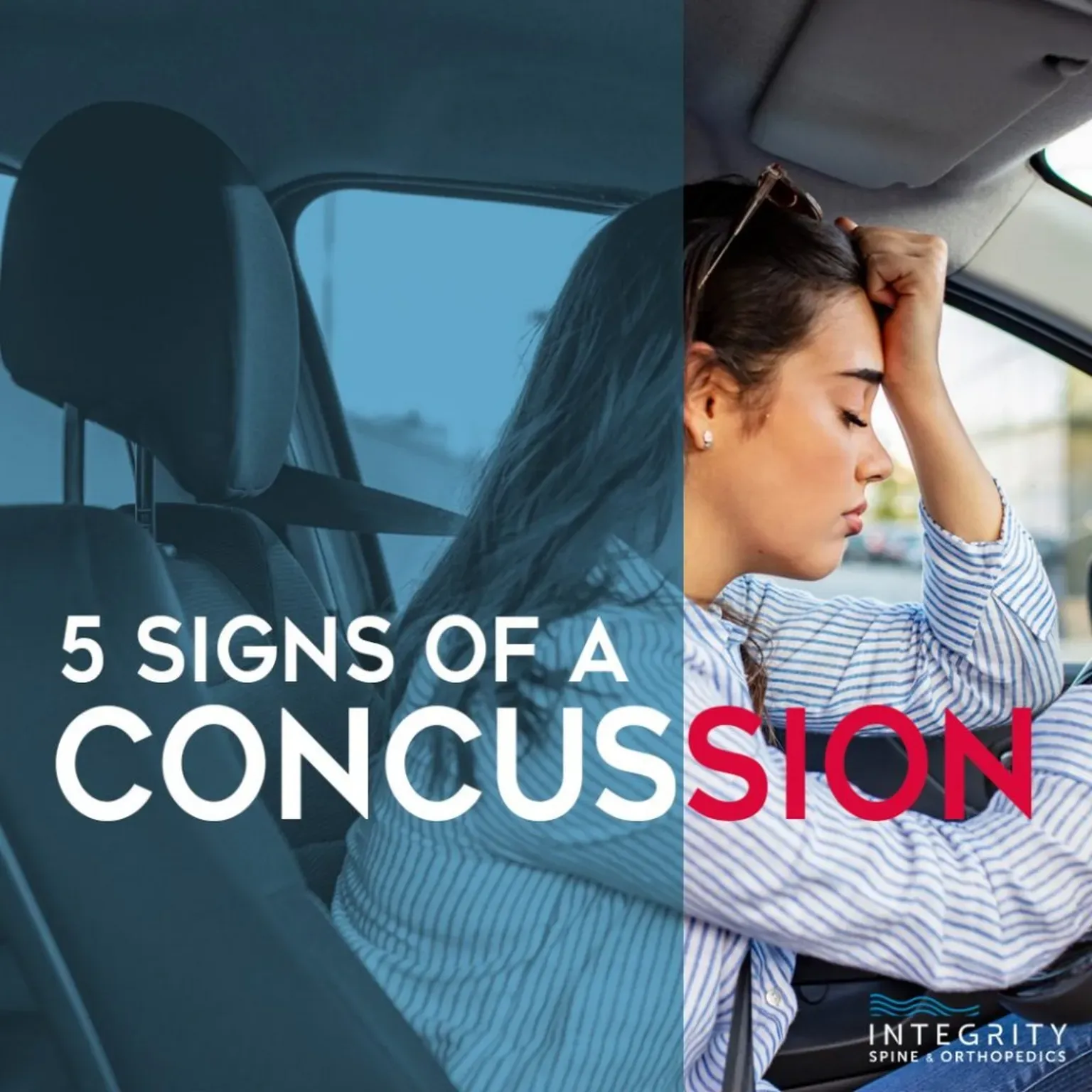Neurosurgery & Orthopedic Surgeons in Jacksonville

5 Signs of a Concussion — and What to Do Next
Did you know that a concussion is classified as a mild traumatic brain injury? A violent blow to the head can cause your brain to move around your skull and become injured.
5 SIGNS OF A CONCUSSION — AND WHAT TO DO NEXT
Did you know that a concussion is classified as a mild traumatic brain injury? A violent blow to the head can cause your brain to move around your skull and become injured. Brain injuries can cause bruising, bleeding, swelling, blood vessel and nerve damage and impaired brain function. A concussion can be the result of a direct blow to the head, a fall, sports accidents, car accidents, bicycle accidents, a work-related injury or a fight.
Many people don’t recognize the symptoms of a concussion and therefore don’t seek medical attention after a traumatic incident. But a concussion is a significant injury that can have lasting consequences if left untreated. Modern research suggests that sustaining even a single concussion could increase the risk of developing Parkinson’s disease or dementia.
Below are telltale signs you should be aware of after you’ve been in an accident.
5 TELLTALE SIGNS OF A CONCUSSION
There are several signs and symptoms of a concussion that may present right after an accident, ranging from mild to severe. It’s also important to know that symptoms may not appear for days or even weeks after an incident. If you’ve been in an accident and hit your head, monitor yourself carefully over the next several weeks. If you experience any of the below, be safe and proactive by seeking medical care.
- Altered mental state. You may feel confused, disoriented, less alert, mentally foggy or just “off” right after sustaining a head injury.
- Headache. One of the most common symptoms of a concussion is a headache directly following the blow or accident, or headaches that develop within a few hours or days.
- Amnesia. Amnesia is another common concussion symptom. You may not be able to remember the events before or after an accident.
- Dizziness. You may feel dizzy and unbalanced. Some people also have blurry or double vision or “see stars” after a fall, accident or blow to the head.
- Lethargy. You may feel sluggish, drowsy or lethargic right after the accident.
Some symptoms require immediate medical attention and may indicate a more serious brain injury. Get help at once if you experience nausea/vomiting, worsening headache, weakness, significant confusion or altered mental state, slurred speech, loss of coordination and difficulty walking, seizures or loss of consciousness.
DELAYED SIGNS AND SYMPTOMS TO KNOW
While some symptoms of a concussion may be present immediately, some symptoms may not appear until hours or days later. It’s not abnormal to have symptoms during your recovery period, but you should see your doctor again if you’re not improving after 7-10 days or your symptoms are worsening.
You may have the following symptoms while you’re in recovery:
- Headaches
- Irritability or mood changes
- Light or noise sensitivity
- Difficulty concentrating
- Difficulty sleeping
- Fatigue
TREATMENT AND RECOVERY
Sustaining a head injury always requires medical care, even if you don’t feel that bad right after an accident or fall. Your doctor will perform a neurological exam and cognitive testing to evaluate your brain function and motor skills. He or she will also run imaging exams like a CT scan to reveal any life-threatening bleeding, swelling or fractures in the skull.
Concussions usually heal completely within a few weeks. But it’s crucial that you follow your doctor’s treatment orders and allow yourself adequate time to recover. As we mentioned before, you may continue to have symptoms for several days during the recovery period, so listen to your body and know your limits. Your doctor will likely recommend the following:
- Rest. Physical and mental rest are both important for the first few days following your accident. While you shouldn’t engage in complete bed rest, avoid mentally stimulating activities like watching TV, reading, texting, playing video games or using a computer. Additionally, refrain from playing sports, participating in vigorous physical activity and driving. You may need to miss a few days of work, have shorter work days, or take more breaks to rest during the day.
- A gradual return to normal activities. After a few days, and with your doctor’s go-ahead, you’ll be able to start adding mentally engaging activities and light exercise back into your days. If you experience any worsening symptoms during activities, slow down, rest, and call your doctor.
- Medications. You may have headaches for a few days or weeks. Over-the-counter pain medications can help relieve the pain.
You should not return to sports or vigorous exercise until your symptoms are completely resolved and your doctor has given you the OK. Returning to sports before you’re ready increases the risk of sustaining another head injury. Suffering a second concussion before the first has healed can have life-threatening consequences.
CALL INTEGRITY SPINE AND ORTHOPEDICS AFTER A TRAUMATIC ACCIDENT
If you’ve been in a traumatic accident, call Integrity Spine and Orthopedics to receive an exam. Our skilled team has experience treating traumatic injuries like concussions, whiplash, fractures, and soft tissue damage. We provide orthopedic care and pain management services to help you treat your condition and get active again as soon as possible.
Call us at 904-456-0017 or reach out online.




